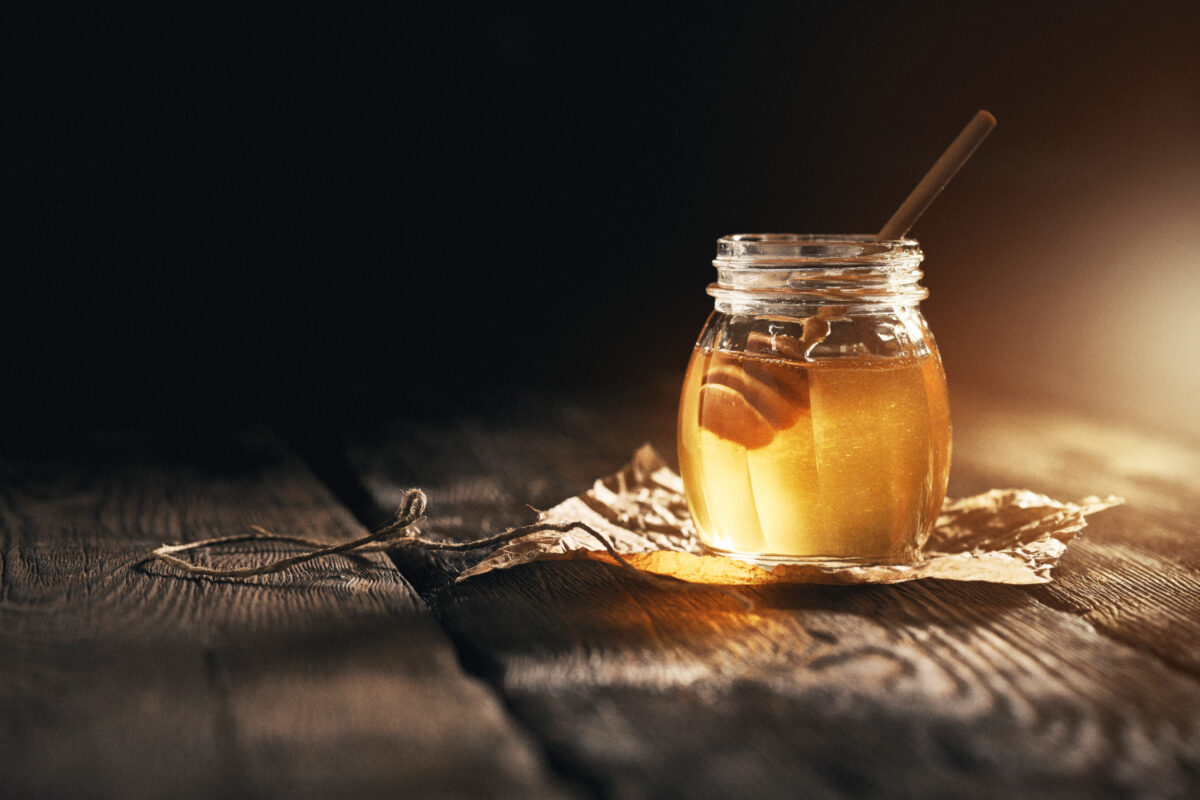Recipes often feature honey as a healthy substitute for sugar in drinks, baked goods and other meals. But is honey really a good sugar substitute?
WellTuned spoke with Karen Lawson, a registered dietitian and case manager with BlueCross BlueShield of Tennessee, to find out.
“Honey is an excellent sweetener when kept in balance with a healthy diet,” Karen says. “But the key is ‘balance.’”
Here’s what you need to know about using honey as a substitute for sugar.
Should you replace sugar with honey?
Karen Lawson: If you scroll through social media, you’ll see people adding generous portions of honey to drinks and other foods. Often, measuring the amount doesn’t seem to be as much of a concern as it would be if they were using table sugar. While honey is less processed than table sugar, that doesn’t mean it should be used large amounts. There are some things people should know before adding honey to their recipes.
1. Honey is higher in calories than sugar.
One tablespoon of honey contains around 64 calories, compared to about 50 calories for granulated sugar. So, people need to measure the amount of honey they are using if they’re trying to lose weight.
2. Honey is sweeter than sugar.
Honey is about 25% sweeter than sugar, so you can use less of it as a sweetener to get the same sweetening affect. A general rule is that if a recipe calls for one cup of sugar, you should use ½ to ¾ cup of honey or less.
3, Honey offers no advantage over sugar for people with diabetes.
Both honey and sugar are and will impact blood sugar levels. Honey has slightly more carbohydrates than sugar, so people with diabetes need to count those carbs as part of their diabetes eating plan.
4, Don’t give honey to infants.
Honey contains bacterial spores that could cause botulism in children younger than a year old.
It’s true that processing does sometimes remove key nutrients from foods, which is why some people prefer to use “natural” sources of sweeteners. But “less processed” does not necessarily equate to “healthy.” It’s a mistake to add lots of honey to your food just because it’s not white sugar. So honey also adds additional calories to your food, which can contribute to weight gain.
Many people do see honey as a healthier substitute for sugar. They associate less processing with a healthier product.
Honey’s benefits
Karen Lawson: The main ingredients of honey are fructose, glucose and water. It’s still sugar—just like table sugar, molasses, and brown sugar. It is less processed than table sugar and retains more nutrients. Honey contains amino acids, vitamins, minerals, iron, zinc and antioxidants, all of which have health benefits.
Local honey is often lauded for its ability to help people fight off seasonal allergy symptoms. If you’re choosing to use raw honey as a way of combatting allergies, make sure it doesn’t actually cause or aggravate any symptoms. Start with very small amounts at first.
Where to buy honey
You can buy honey in virtually every grocery store, as well as online. Don’t forget about your local farmer’s markets and roadside stands, good places to find local honey. Markets, gift shops, and even hardware stores may also stock local honey.
“Unless you have specific reasons that you should avoid using honey, it’s fine to use honey in moderation,” says Karen Lawson. “Just remember that while it looks healthy, it’s still a sugar.”
WellTuned guide to smart shopping at a farmer’s market
Get more information about specific health terms, topics and conditions to better manage your health on bcbst.com. BlueCross BlueShield of Tennessee members can access wellness-related discounts on fitness products, gym memberships, healthy eating and more through Blue365®. BCBST members can also find tools and resources to help improve health and well-being by logging into BlueAccess and going to the Managing Your Health tab.


